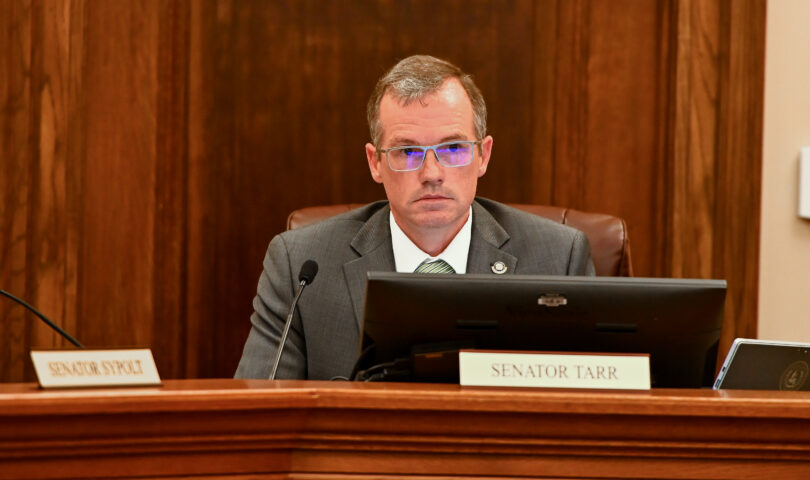CHARLESTON – A bill tweaking county commission veto power over local health board rules generated extensive debate Tuesday over a proposal to also give county education boards veto power er school-related health orders.
The bill is SB 3026 and is up for consideration as part of this week’s special legislative session. It came to the Senate floor on first reading on Monday and was sent to the Judiciary and Finance committees on Tuesday.
It was explained in both committees that the bill arose in response to confusion over some elements of SB 12, which passed during the 2021 session and gave “appointing authorities” – counties or counties and cities where health boards have joint oversight – veto power over health board rules.
Tom Susman, representing the West Virginia Association of Local Health Departments, said the Berkeley/Morgan County Health Department attempted to bypass the counties’ veto power by issuing a school mask mandate in the form of an order instead of a rule. (The issue was later resolved.)
So SB 3026 specifies than an order is narrow, issued “to protect the public health of the citizens by directing an individual or a discreet group of individuals to take a specific action to protect the health of the public or stop the spread of a communicable disease.”
A rule is broader and applies to the entire jurisdiction of a health board – for instance an indoor smoking ban.
Senate Judiciary took the bill first and retooled it to remove a provision that gave school boards veto power over rules applied solely to public schools.
But in Finance, chair Eric Tarr, R-Putnam, attempted to amend it back in, but in a different form.
He wanted his amendment to apply to health orders. A school board would have 30 days to approve, disapprove or amend it.
He feared that a health board or health officer could overreach and, for example, needlessly quarantine a whole school, disrupting the kids’ education. Health boards contain members with no public health expertise – florists and carpenters, for instance – he said. A health board might decide to hand out condoms to deal with a syphilis outbreak in a school.
Health boards, he said, are appointed and unaccountable while appointing authorities are elected and accountable to the voters.
All three physicians on Finance opposed the amendment. Sen. Mike Maroney, R-Marshall, is Health chair and as lead sponsor of SB 12. He said that health boards aren’t experts but they’re led by health officers who are physicians.
And a health order are issued in a timely manner to deal with immediate public health problems, he said. “To wait to have that ratified is like committing health malpractice.”
Sen. Ron Stollings, D-Boone, said, “These orders are to save people’s lives. … Putting a board of education in a public health role is just wrong.”
The amendment failed in a 6-10 voice vote.
The third physician on the panel, Majority Leader Tom Takubo, R-Kanawha, offered an amendment to do away with a pocket veto in the bill.
SB 12 requires appointing authorities to act on a bill – approve, disapprove or amend it – within 30 days. SB 3026 adds a pocket veto: Any rule not acted on within 30 days automatically dies.
Takubo proposed doing just the opposite: Any rule not acted on in 30 days would be automatically approved. Takubo and Tarr again took opposite sides, with Takubo saying his version would hold appointing authorities more accountable by requiring them to act to kill a rule.
Tarr said Takubo’s amendment would reduce the accountability of public officials by letting them ignore a rule and allow it to take effect. Maroney sided with Tarr on this one.
That amendment failed in a show of hands.
The bill contains a number of other provisions, including defining a health officer’s enforcement power for state, local government and health board rules; and specifying that a health officer may give guidance – meaning advice to a person, the public, a business, school board, or governmental entity – which doesn’t rise to the level of an order.
HB 3026 will be on third reading, with further amendments pending, when the Senate convenes Wednesday.
Tweet David Beard @dbeardtdp Email dbeard@dominionpost.com




